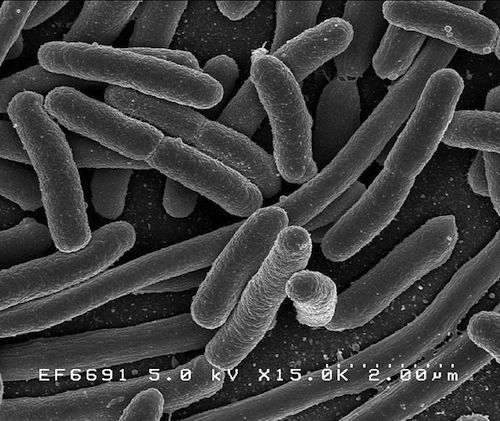 Evolution
Evolution
 Intelligent Design
Intelligent Design
 Medicine
Medicine
About that WHO Report on Antibiotic Resistance

The report from the World Health Organization on antimicrobial resistance is making the rounds and scaring everyone. The image is offered of a kid falling off a bike, getting a little scrape — and dying of bacterial infection, as a routine thing in the 21st century. From the Telegraph:
The crisis is bigger and more urgent than the Aids epidemic of the 1980s, it was warned.
UK experts said the ‘era of safe medicine is coming to an end’ and government funds must be pumped into the production of new drugs.
In the foreword to the report Dr Keiji Fukuda, WHO’s Assistant Director-General for Health Security, wrote: "A post-antibiotic era — in which common infections and minor injuries can kill — far from being an apocalyptic fantasy, is instead a very real possibility for the 21st century."
He said: "Unless we take significant actions to improve efforts to prevent infections and also change how we produce, prescribe and use antibiotics, the world will lose more and more of these global public health goods and the implications will be devastating."
What’s the relevance for our concerns at ENV? Our friend Tom Bethell points out that antibiotic resistance as a product of natural selection, while it’s constantly waved in our faces as a dramatic proof that all claims for Darwinian evolution are true, in fact cuts the other way:
For intelligent design, the big implication of antibiotic resistance is that it is cited as the main illustration of natural selection. That and those light and dark moths in industrial climes! Ask a Darwinian if natural selection has been demonstrated and he will tell you about antibiotic resistance in a very condescending tone. He will assume you never heard of it.
Basically, antibiotic resistance show how you get more of what already exists, not how you get new things. Darwin thought natural selection was the latter.
Meanwhile, Wesley Smith observes that the news, assuming it’s not unduly sensational, hits materialists — transhumanists, specifically — where it hurts:
Transhumanists are mostly materialists. To make up for their lack of faith or hope in a post "this life" existence, they have embarked on a Utopian quest to achieve "post humanity" that will allow them to live nearly forever in the corporeal here and now.
But it’s all vanity. Real life always intrudes to forcefully remind us that no matter how advanced our truly wonderful medical breakthroughs, we are — and ever will be — mortal. No escape.
Needless to say:
I hope they find a corrective. Antibiotics are one of the prime reasons life expectancy has risen so dramatically in the last one hundred years.
It may be worth noting, if only for perspective, that bacteria with this gift have been around a lot long longer than we’ve been producing antibiotics. A 2011 letter in Nature, "Antibiotic resistance is ancient," reported
targeted metagenomic analyses of rigorously authenticated ancient DNA from 30,000-year-old Beringian permafrost sediments and the identification of a highly diverse collection of genes encoding resistance to ?-lactam, tetracycline and glycopeptide antibiotics. Structure and function studies on the complete vancomycin resistance element VanA confirmed its similarity to modern variants. These results show conclusively that antibiotic resistance is a natural phenomenon that predates the modern selective pressure of clinical antibiotic use.
Image: Scanning electron micrograph of Escherichia coli/Wikipedia.
